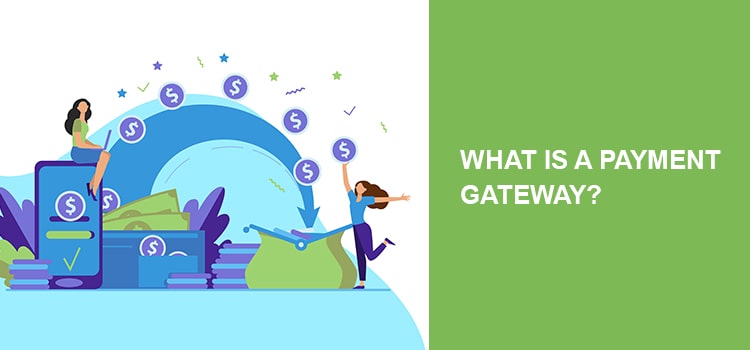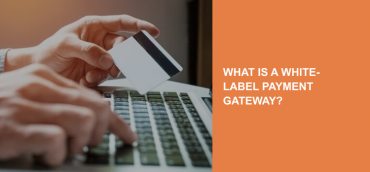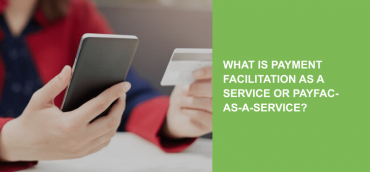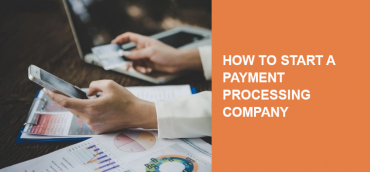Based on Digital Commerce 360 data, in 2020, the total number of online transactions exceeded $ 861.12 billion.
This figure is 44% more than in 2019 and is the highest growth rate in the last 20 years. E-commerce is closely related to various financial institutions.
Today we will take a look at payment gateways – the key intermediaries in online settlements.
What is a payment gateway?
A payment gateway is a hardware and software complex that allows merchants to automate the process of accepting payments via the Internet. The gateway is created by the payment system, which defines its specification and is subsequently responsible for its technical support. Thanks to this development, a website is connected to the banking payment processing system. If you have the appropriate access, the bank processes and collects transactions that are carried out on your Internet resource. Usually, the owners of sites or stores in the global network use payment gateways that banks or acquirers have provided. If we are talking about large companies that simultaneously process a large number of monetary transactions, in this case, working with your payment program is much cheaper than with a rented one.
The process of transaction flow
Although the transaction process takes only a few seconds, there are several steps during this short period. Once a customer receives a request for a secure payment page and places an order, the transaction data (credit card number, date, CVV code) is encrypted and sent to your payment processor through the gateway. The payment processor contacts the credit card issuing bank and receives feedback in the form of confirming or rejecting the transaction. The response is then sent to the payment gateway, which forwards it to your site. Finally, the information is interpreted and an appropriate response is generated. If the deal is approved, the seller fulfills the order.
How to choose a payment gateway?
The choice of payment system primarily depends on the size of the company that owns the site. If a trading enterprise has not been organised very long ago and its turnover is low, it is worth considering working with an aggregator. This will allow you to reach the maximum number of buyers. Among them, there will be cardholders of various banks, and users of assorted electronic wallets.
Aggregators also make it possible to pay for goods in an online store through an online bank, from a mobile phone account, using virtual currency. The number of options can include many ways to transfer money, including innovative and non-mainstream methods.
The aggregator itself concludes agreements with each of the financial institutions, the account of which is held by the buyer. A company with an average turnover that has been on the market for several years can choose to cooperate with a payment gateway, aggregator, or e-money operator. In many cases, it is more profitable for a large company to work directly with a financial institution. It will be provided with individual terms of cooperation.
Other criteria for choosing an acquirer include:
- Geography of work, including countries and regions with potential clients. If you want to sell goods to citizens of different countries, the acquirer must have agreements with the relevant banks.
- Commission percentage. Pay attention to individual offers. They can depend on the turnover of the company and the scope of its activities.
- Connection technical features. If the site to which the payment is connected is made on a popular constructor such as WordPress, Tilda, Joomla, you can independently connect the acquirer plugin. Working through an open API with a self-written site, including WordPress, is possible only through code.
- The possibility of money withdrawal. Some countries may have restrictions.
- How does the acquirer operate? The method of payment by the client and the withdrawal of funds by the store depends on whether it is a payment gateway or an aggregator.
Payment system requirements for websites
All acquirers have different requirements for the sites for which they provide services. It should also be taken into account when choosing a specific bank, aggregator, payment gateway, or e-money operator. Let’s consider them.
- Site location on a second-level domain. Example of a second-level domain: site. com, something. site. com is already a third-level domain
- The site must contain the full name of the company, its legal and actual address. A detailed description of the goods and services provided by the trading company is mandatory.
- Completeness of filling with content, working internal links. Lack of spam, incomplete, and blank pages.
- The services and goods offered by the company on the site do not contradict the legislation, ethical norms, and are not criminal. The regions of operation of the resource and the acquirer are taken into account. Traditionally banned drugs, weapons, gambling, erotica.
- Indication of prices in national currency and/or its foreign equivalent.
- A detailed description of the movement of goods. This includes the terms and conditions of delivery, addresses of pick-up points, a description of the mechanics of the order, and the possibility of a refund.
- Registration and authorisation on a website with a personal account must be provided using the HTTPS protocol. In the absence of a personal account, HTTPS must be used during the ordering process.
- The IP address must be static, doorways are excluded. Address placement only on paid servers providing hosting services. All pages associated with the site have a single domain name.
- Placement of logos of payment systems on the website of the online store.
- Card details should only be posted on a page with a secure payment form. It is provided by a service provider.
- Relevant Buyer Data Protection Policy.
The connection of each of the acquiring options and cooperation with a financial institution are slightly different.
The bottom line
A payment gateway is part of any online transaction. It is responsible for the reliability and security of data transmission between the buyer and the seller. All information is encrypted and not available to third parties. When choosing a service, you need to focus on the platform with which the online store works. It only supports certain types of gateways. In the future, the amount can be increased or decreased.




